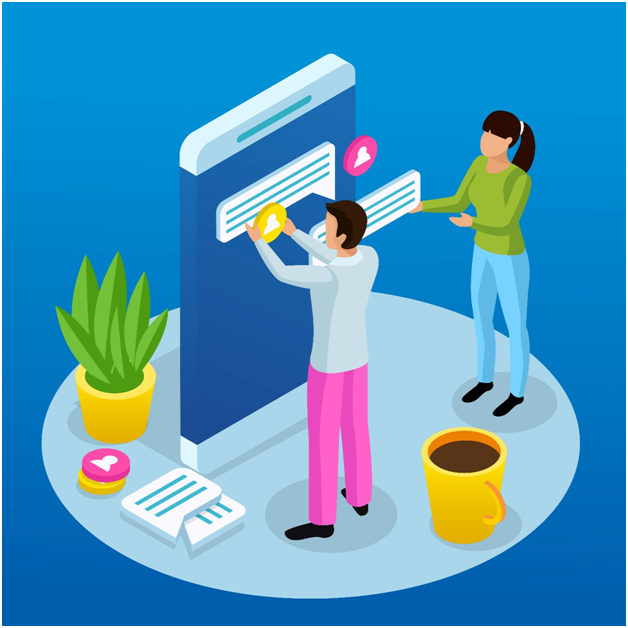
The credit to enriching people’s lives goes to mobile apps that altogether brought a drastic transformation all over the world. At the same time, it also provided ample scope to developers, for them to showcase their talent and creativity. The mobile app technology world truly has taken a curvature that’s unimaginable.
When it comes to mobile apps, the Android OS by Google is on top. The Android app development market continues to flourish as demand grows year after year. Today, it’s powering millions of smart device and with its global visibility, it’s not a hype that Android is the operating system of the present age.
The OS has numerous in-built security features, such as segregated memory areas, app sandboxing and bugger and integer overflow attacks protection for instructions and program data.However, it is the responsibility of a developer creating a complex app to make it secure and to protect user privacy. It is imperative for any android app development company to build highly secure android applications.
Ever Present Threats
In the world today where people lead a digital lifestyle, mobile app security is paramount. From funds transfer to investments, people make us of mobile applications for a huge range of purposes. Even business organizations have integrated personalized applications to reinforce customer support and marketing.
However, ransomware and malware attacks continue to be a threat, despite stringent security measures when it comes to android app development.
Top Security Measures for App Development
With the alarming size and frequency of data security loopholes, it’s paramount for businesses to keep Android apps secure. The following are top security measures to help bridge security gaps.
1. High Authentication level: Nowadays, most developers rely on multi-factor authentication. Sensitive data and information stays secure via a strong session management as well as a disconnected system. Make setting up advanced authentication mechanism a priority, with tools such as OAuth 2.0 and JSON web tokens.
The tools ensure added security and the secure and integrated access gateways make certain that company resources will only be accessed by compliant devices and authorized apps.
2. Keep a Secure Native Code: To keep the native code secure, developers should utilize the Android software development kit for mobile application development, instead of using the Android NDK. In an android development company, it’s important for collaborating developers to ensure that experts use the Android SDK.
When native code is integrated in the process of development, the app gets data over the network. Furthermore, this also could come from files or an IPC that could be exposed to security factors. Thus, always keep a secure native code with the software development kit during development.
3. Data Encryption: Securing mobile apps involves keeping all sorts of information that’s stored in the device secure. It encloses data transited between the app and the back-end server and the source code too. Confirming the back-end web service of an app excludes certificate pinning.
Data encryption is one of the most effective practices for Android app security. This keeps hackers from stealing critical information and data.
4. Server security: The server these days stays vulnerable to hackers. Often, unscrupulous persons try to attack the server’s API. This indicates that you have to keep the API and server secure. A firewall for web apps could be added or you could do code reviews that helps combat the challenge.
5. Obstructing of Code: During the process of app development, the source code should be protected. Thus, developers have to make it unintelligible for humans and decompiler. In the compilation process, the whole operation should be preserved.
The obstruction process gives an impenetrable code. It leverages the confidentiality degree for intellectual assets. Moreover, it prevents reverse engineering and in the process boosts the app security.
6. Code tamper detection: During development, it’s recommended to integrate anti-tamper mechanisms. Furthermore, the security checklist must have anti-virus, signature verification and activity logs included. This helps keep tabs of vulnerable or infected libraries, which are added to the app’s source code.
7. Regular Update and Testing: Statistic reveals that majority of Android devices make use of a version that are at least a couple of years old. It is an indication that over three quarters of devices are at risk. Hackers exploit the vulnerabilities and weakness in software.
The Android OS however is updated regularly to combat the threats. Penetration testing is another mechanism that’s used in server-side checks.
8. Security and Confidentiality: The encryption key, as part of the Advanced Encryption Standard or AES should at least be 128 bits. Reputable developers use pinning certificate as well as the hash key to strengthen security further. It encompasses the return of complete request that looks as a hashed string, together with a secret key.
The string is compared by the server with request that it receives, which verifies any change or modifications in the process.
9. Robust Input Validations: Data validation, referred also as input validation is the practice in which an input a user supplies is tested. This prevents data that’s not properly formed to make its way to the information system. This requires a strong input validation to secure an app, regardless of the platform it runs on.
10. Transit Data protection: Protecting transit data is paramount. One should be proactive with defence mechanism. For example, consider jailbreak detection that should be advanced and access controls must be status-based. Should a device gets lost or stolen, the whole app containing business data must be deleted to ensure that valuable data won’t fall into the wrong hands.
When it comes to developing apps for the Android operating system, the key to success for any developer is not only having the expertise and skills to build apps, but also the diligence and alertness in keeping apps highly secure.
We hope the information in this article will help you. Stay tuned to our Programming section to get regular updates.
Author Bio:
Olivia Diaz is working at eTatvaSoft, an Enterprise level Web & Mobile Application Development Company. Being a tech geek, she keeps a close watch over the industry focusing on the latest technology news and gadgets. Follow me on Twitter.





